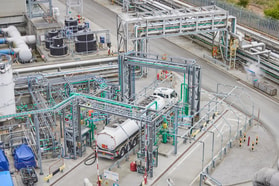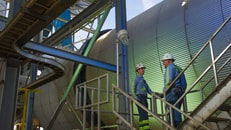Repsol and Enagás to develop renewable hydrogen technology
Repsol and Enagás have signed an agreement to continue developing technology that allows for the production of renewable hydrogen (H2).
This technology, which was originally developed by Repsol, will drive progress toward a medium-term objective for both companies: incorporating the gas obtained through this new low-carbon process into their respective businesses, in order to improve sustainability and efficiency.
Repsol CEO, Josu Jon Imaz, and Enagás CEO Marcelino Oreja signed the agreement in the presence of Repsol’s Corporate Director of Technology and New Ventures; Jaime Martín Juez; Repsol’s Corporate Director of Strategy, Control and Resources; Antonio Lorenzo; and Enagás’ Chief Transformation Officer, Antón Martínez.
... to continue reading you must be subscribed























